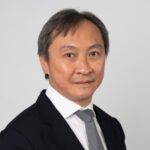With Singapore’s Smart Nation 2.0 initiative, which aims to transform urban living through a seamless, interconnected, data-driven city, Check Point Software Technologies underscores the importance of robust cybersecurity measures to address evolving threats and ensure safety in future urban ecosystems.

Teong Eng Guan, regional director of Southeast Asia & Korea at Point Software Technologies, said: “Integrating advanced technologies—such as Internet of Things (IoT), artificial intelligence (AI), and 5G brings potential vulnerabilities to critical infrastructure such as water distribution, transportation, and emergency response systems— to potential cyber threats. Addressing these vulnerabilities will be crucial in ensuring the operational safety and economic stability of Singapore’s smart city framework.”
Securing Singapore’s smart city future
Teong shared attacks on critical infrastructure and public safety systems, data breaches, privacy concerns, and water supply and sanitation vulnerabilities are among the challenges of smart cities.
“To ensure that smart city advancements remain secure, a comprehensive cyber security approach is essential. Governments, private sectors, and citizens must all contribute to building a cyber-resilient urban ecosystem,” said Teong.
Strategies to help protect Smart Cities infrastructure include adopting Secure-by-Design Principles, collaboration between public and private sectors, investing in training and retaining cybersecurity skilled professionals, building citizen awareness, and developing incident response plans.
A future of promise
“The promise of smart cities is an exciting one—improved quality of life, greater efficiency, and more sustainable urban living. However, without addressing the growing cyber security threats, these benefits could be overshadowed by significant risks. As we build the cities of the future, it is essential to implement proactive measures that protect critical infrastructure, safeguard citizen data, and ensure resilience in the face of cyberattacks,” Teong concluded.




